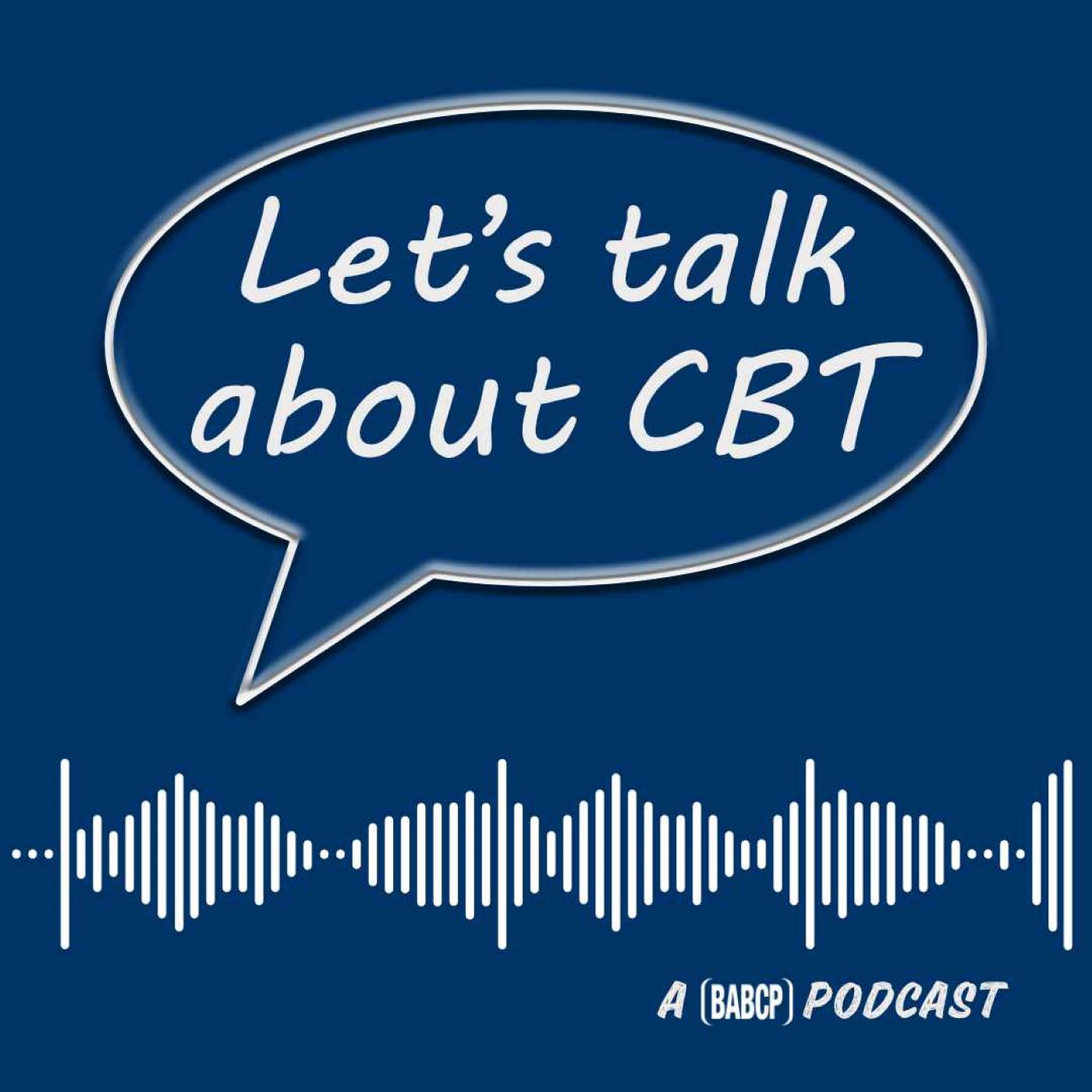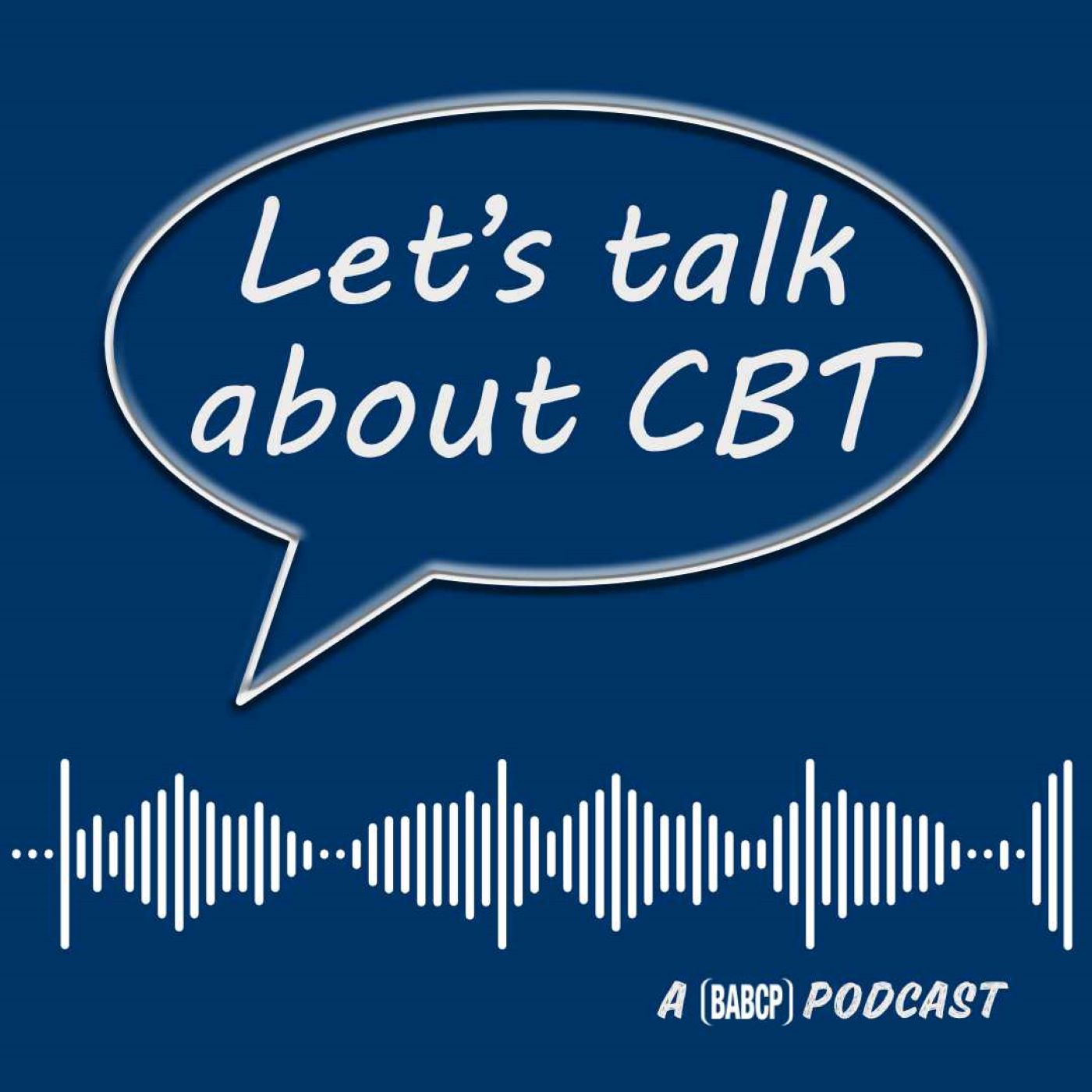Let’s talk about…the Mental Health Jedi
Description
In this episode, Helen Macdonald speaks with Chris Frederick- advocate, suicide survivor, founder of Project Soul Stride, and self-described "Mental Health Jedi." Chris shares his deeply personal journey, from childhood trauma and racial adversity to becoming a mental health advocate and what helped his recovery- and the things that didn’t.
Resources & Support:
If you or someone you know needs urgent help, reach out to Samaritans at 116 123 (UK) or visit samaritans.org
Brent Recovery College- https://www.cnwl.nhs.uk/services/recovery-and-wellbeing-college
The Listening Place- https://listeningplace.org.uk/
James’ Place- https://www.jamesplace.org.uk/
Find more information about CBT- www.babcp.com
Find our sister podcasts and all our other episodes in our podcast hub here: https://babcp.com/Podcasts
Have feedback? Email us at podcasts@babcp.com
Follow us on Instagram & Bluesky: @BABCPpodcasts
Credits:
Music is Autmn Coffee by Bosnow from Uppbeat
Music from #Uppbeat (free for Creators!): https://uppbeat.io/t/bosnow/autumn-coffee
License code: 3F32NRBYH67P5MIF
This episode was produced by Steph Curnow
Transcript:
Helen: Hello, and welcome to Let's Talk About CBT, the podcast where we talk about cognitive and behavioural psychotherapies, what they are, what they can do, and what they can't. I'm Helen Macdonald, your host. I'm the Senior Clinical Advisor for the British Association for Behavioural and Cognitive Psychotherapies.
Today I'm speaking with Chris Frederick. I'm absolutely delighted to have him here with me in the studio. He's going to share about his personal history and some difficult experiences that he had in his earlier life. How he ended up looking for help with his mental health and some of the things that helped as well as some of the things that were less helpful and how he's then started using his lived experience to help inform professionals, services and members of the general public about what helps and what helps people to access the kind of support that they need. He's also going to tell us how he ended up being known as the mental health Jedi.
Chris, would you just like to introduce yourself and tell us a bit about who you are?
Chris: So my full name is Chris Frederick. Born and bred in London, currently living in northwest London. I guess I like to introduce myself. Firstly, is I'm a suicide attempt survivor. I think it's important to get that out there. I'm an advocate and founder of Project Soul Stride, which we'll touch on a little bit later. And, also I'm a mad Star Wars fan.
Helen: Oh, fantastic. And you've just mentioned a couple of things, really important things about your background and who you are. Is there anything else that you'd be happy to tell people listening today about your background and challenges or barriers that you've experienced?
Chris: I mean I guess if I backtrack to the story that, that brought me to that point, very quickly in the barriers, because they might be things that listeners would identify with. I'm a twin, I'm 55. Growing up for us in the early seventies was a tough time. We lived as a small family of four in a flat in a council estate in Wembley and due to the pressures that my father and my mother who were very young, they were only 19 and 18, and they'd not long been in the UK from the Caribbean. So they themselves were carrying their own baggage, their own trauma, their own legacy and that transferred, I guess, onto us as young children.
My father was a very strict, sort of military type figure. A beautiful looking man- if you put a picture of Muhammad Ali at his prime and my father at his prime, they could almost be twins, brothers, because that's how you know, he was tall, statuesque, beautiful green eyes, but on the downside, he had a heavy hand. And you know what I mean by that Helen, he had a heavy hand. He was quite, he was an intimidating character. And that manifested itself in negative behaviour in the house, physical abuse of various descriptions. And we grew up watching and witnessing and being victim of that as we grew up, and this is all within a black community. And then we moved at the age of 11, we upped sticks and moved to Chislehurst, which was a suburb of Kent. So imagine now we've moved from an all sort of majority ethnic community to now an ethnic minority community where we were the only black family on the street. Elms Street Avenue number 60, remember it well. Went to Kenmore Manor, and I remember for the first three years we were two of only five non-white pupils in the entire school. So without going into too much detail, you could also now begin to identify with the certain trends, the recurring themes, the racism of course, the pressures from my family. My parents eventually split up and divorced. My relationship with my twin eventually split. And so we ended up the complete, the family was completely fractured and still is today. And you bundle all that up. I started to experience mental ill health probably at the age of 19. And I'll tell you what it was, it was alopecia. Because I used to have, I used to have, if you could see me now, I've bald hair. and I started to feel there were bald patches appearing in the back of the scalp. So I went to the doctors and you said, oh, you've got alopecia. we could inject you with steroids, give you some cream. I said, well, what's the underlying reasons? And he goes, oh, it's stress. you. What can we do? What can I do to overcome that? And again, that was in the late eighties so talking about counselling and therapy again wasn't really part of the dialogue back then. Right. And then at the alopecia came back 10 years later. So I was beginning to realise I had some problems. And then I took off to Asia, lived there for 20 years, had an amazing time, an amazing experience. Again, suffered racism, but of a completely different type in China, Beijing, Singapore, Hong Kong as a black man, very few in number, but I didn't let that deter me. I had a very good career. I had a lot of experience and beautiful people, travelling a lot. But it all came to a head. It all came to head, and it's something that I called the ripple effect because it almost as if there was an author I spoke to last year, he when he heard my story, he said, I'm sorry to say this, Chris, but it almost sounds as if it was inevitable that you would reach breaking point and attempt to take your life, based on everything that you told me and that ripple that had gone through, the desperation for wanting to find love, family, belonging, identity, all the things that have become so precious to me now manifested itself when I lost my last job in Singapore in 2018, and I tried to commit suicide later that year. And then that was the time for me to leave Asia. After nearly 20 years, I realised that I needed to close the book on that era of my life. And I moved to Los Angeles and then a few months later moved to London, and then I attempted suicide again a couple of years later during Covid. So, you know, I've looked into the precipice, I've looked into the darkness, and twice I wanted to disappear from the world.
Helen: And Chris, I'm really grateful to you for sharing so openly about what's happened to you and just such, such a combination of difficult life events and the circumstances that you were living in. And I mean, I will say that the show notes will have links to help and more information for people who may experience similar things or be concerned about risks and safety. But I'm really grateful for you to sharing so openly and you've said that all of these things really have brought you to where you are now. Tell me a bit about how you went from what sounds like a real, you said looking into the abyss, to accessing something that made a difference to you, or how you got the right kind of support, the right kind of help.
Chris: So I mean, if I tell you, Helen, that when I got admitted into Ealing Hospital after my second attempt, at that moment in time, it was like, oh, finally I'm about to get some help. Finally, I'm about to be recognised as an individual who needs support from the NHS. And then through that whole process of being in the hospital, the psychiatric team at the hospital were very good, they were very helpful. The clinical psychologist came to see me. She spoke to my mum separately and said, okay, we need to help your son. And when I got discharged, I got put into the hands of the community mental health team, the Brent Community


















